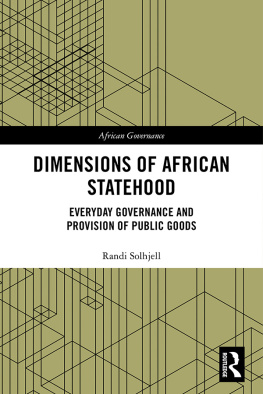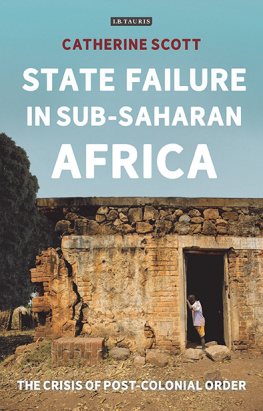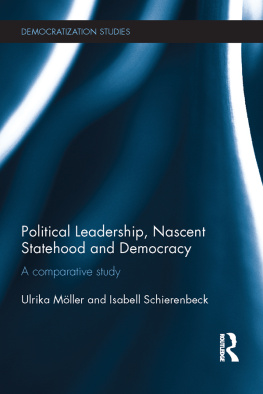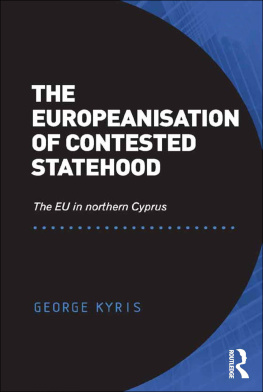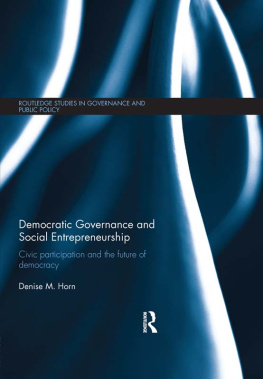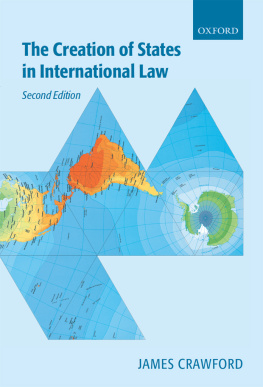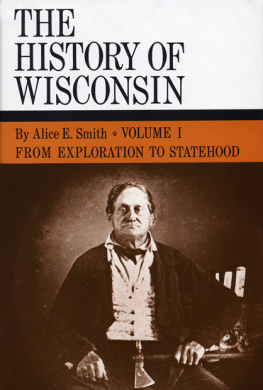Dimensions of African Statehood
This book argues that the way in which we use the concept of state in many African countries must involve a deeper engagement of the complex workings of statesociety relations, rather than a master narrative of European state formation.
Dimensions of African Statehood explores the concept of statehood as a set of daily practices that govern and generate effects through the voices of those performing and living the state. The book is based on extensive, firsthand research on the delivery of and access to public goods as expressions of statehood in eastern Democratic Republic of Congo. A public good, a field long dominated by economic models, can be seen as a power relation rather than a universal, positive good. By unpacking the meaning of whose public, the book offers an avenue for a dynamic and multilayered understanding of practices that express and shape statehood. The assessment of statehood as presented in this book is an invitation to contribute to the new era of what statehood entails in regions different from the Global North.
This book will be of interest to scholars and students of politics, African studies, and governance.
Randi Solhjell is affiliated with the Norwegian Police University College and the Centre for Research on Extremism at the University of Oslo. She was a former senior research fellow at the Norwegian Institute of International Affairs and holds a PhD from the London School of Economics.
African Governance
South Sudan
Post-Independence Dilemmas
Edited by Amir Idris
Institutional Legacies, Decision Frames and Political Violence in Rwanda and Burundi
Stacey M. Mitchell
Aid Relations and State Reforms in the Democratic Republic of the Congo
The Politics of Mutual Accommodation and Administrative Neglect
Stylianos Moshonas
African Presidential Republics
Jean Blondel
Cultural Capital and Prospects for Democracy in Botswana and Ethiopia
Asafa Jalata
Soldiers and the State in Zimbabwe
Godfrey Maringira
Islamist Foreign Policy in Sudan
Between Radicalism and the Search for Survival
Mohammed H. Sharfi
Dimensions of African Statehood
Everyday Governance and Provision of Public Goods
Randi Solhjell
Dimensions of African Statehood
Everyday Governance and Provision of Public Goods
Randi Solhjell
First published 2020
by Routledge
2 Park Square, Milton Park, Abingdon, Oxon OX14 4RN
and by Routledge
52 Vanderbilt Avenue, New York, NY 10017
Routledge is an imprint of the Taylor & Francis Group, an informa business
2020 Randi Solhjell
The right of Randi Solhjell to be identified as author of this work has been asserted by her in accordance with sections 77 and 78 of the Copyright, Designs and Patents Act 1988.
All rights reserved. No part of this book may be reprinted or reproduced or utilized in any form or by any electronic, mechanical, or other means, now known or hereafter invented, including photocopying and recording, or in any information storage or retrieval system, without permission in writing from the publishers.
Trademark notice: Product or corporate names may be trademarks or registered trademarks, and are used only for identification and explanation without intent to infringe.
British Library Cataloguing-in-Publication Data
A catalogue record for this book is available from the British Library
Library of Congress Cataloging-in-Publication Data
A catalog record has been requested for this book
ISBN: 978-1-138-61579-3 (hbk)
ISBN: 978-0-429-46288-7 (ebk)
Typeset in Times New Roman
by Wearset Ltd, Boldon, Tyne and Wear
Contents
We are at a new era of studies on the African state. When I first started this study in 2010, a small group of scholars, especially Jean-Pierre Olivier de Sardan, Thomas Bierschenk, Tobias Hagmann, Didier Pclard, Giorgio Blundo, Joel S. Migdal, Pierre-Yves Le Meur, Klaus Schlichte, and Christian Lund, provided a sorely needed counter-narrative to the dismissive articulation of state failure in Africa. Rather than having a master narrative of European state formation, these scholars demonstrated that the devil is in the details. That is, by taking a close look at the nitty-gritty workings of bureaucracy and taxation, public authority, the informalformal nexus, accessing and controlling public services and the state in society, new subfields have emerged. These subfields of the states constituent parts have been studied for decades in the Global North (such as by Robert Dahl and Michael Lipsky) but have not achieved similar status in the Global South.
Since I started working on this project, new scholarship has emerged that seeks to fill this gap in our understanding of the African state, by engaging seriously with the empirical realities in different African countries, often through long-term fieldwork and ethnographic methods. Publications from this emerging field of work, including this book, analyze the everyday and undetermined process of statehood. Here, it is precisely contestations, ruptures, and processes that provide inspiration for studying the state in society. The emphasis on the everyday, as opposed to overarching theories of nations, sovereignty, and rule, is to demonstrate how citizens and authorities cope, construct, and challenge what statehood means both in materiality and symbols in their daily lives.
The focus in this book is on the provisions of public goods, a field long dominated by economic models which has increasingly also triggered the interest of qualitative social scientists (e.g., Tom De Herdt, Kristof Titeca, Veronica Gomez-Temesio, Daniel Miller, Laura Bear, and Nayanika Mathur). Instead of top-down and apolitical perspectives, as in economic modeling, the negotiations for public goods are problematized as power relations in this book. By unpacking what is understood by public goods, i.e., whose public, the book offers an avenue for a dynamic and multilayered understanding of practices that express and shape statehood.
The assessment of statehood as presented in this book is an invitation to contribute to the new era of what statehood entails in regions different from the Global North. I do not claim to have a final answer to this complex endeavor but I wish to be of assistance to students and new scholars entering the field as well as engaging with established scholars for continues, fruitful discussion.
Finally, there are a number of colleagues and friends I would like to thank for inspiring conversations and feedback. First, I extend my sincere gratitude to Christian Lund who suggested analytical refinements on the dimensions-of-statehood approach and encouraged me to publish this study as a book. I would also like to thank Kasper Hoffmann, Xavier Guillaume, Michel Thill, Ellie Knott, John Breuilly, Elliott Green, Kevin Dunn, Catherine Boone, Phil Clark, Ingvild Gjelsvik, and Francesca Jensenius who, at different stages, commented and provided insight into how this study could be improved, and for believing in me and my work. The empirical study in the Democratic Republic of Congo would not have been possible without my excellent research assistant Jonathan Magoma. I would also like to thank the anonymous reviewer for the generous comments on this book. The usual disclaimer applies.

